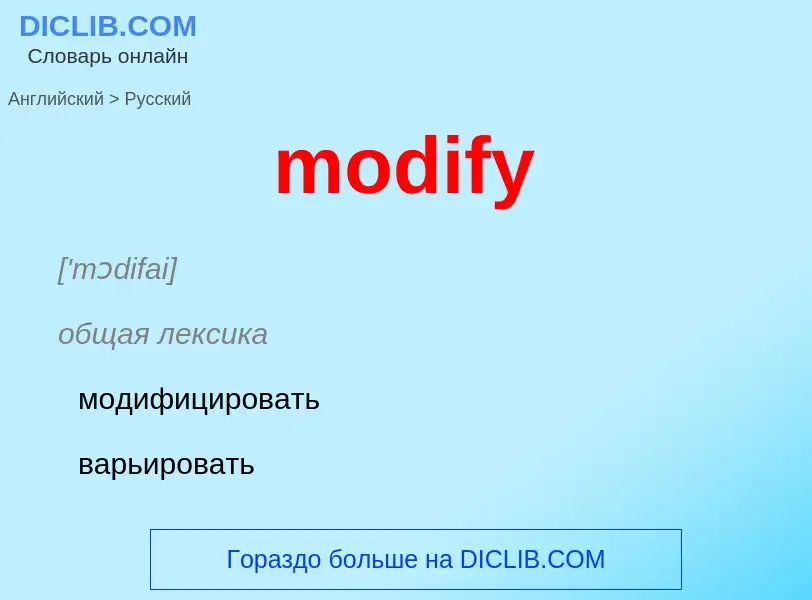Перевод и анализ слов искусственным интеллектом ChatGPT
На этой странице Вы можете получить подробный анализ слова или словосочетания, произведенный с помощью лучшей на сегодняшний день технологии искусственного интеллекта:
- как употребляется слово
- частота употребления
- используется оно чаще в устной или письменной речи
- варианты перевода слова
- примеры употребления (несколько фраз с переводом)
- этимология
modify - перевод на Английский
['mɔdifai]
общая лексика
модифицировать
варьировать
видоизменять
Смотрите также
глагол
общая лексика
модифицировать
видоизменять
смягчать
снижать
умерять
лингвистика
изменять с помощью умляута
видоизменять через умляут
грамматика
определять
синоним
Определение
Википедия
In computer science, read–modify–write is a class of atomic operations (such as test-and-set, fetch-and-add, and compare-and-swap) that both read a memory location and write a new value into it simultaneously, either with a completely new value or some function of the previous value. These operations prevent race conditions in multi-threaded applications. Typically they are used to implement mutexes or semaphores. These atomic operations are also heavily used in non-blocking synchronization.
Maurice Herlihy (1991) ranks atomic operations by their consensus numbers, as follows:
- ∞: memory-to-memory move and swap, augmented queue, compare-and-swap, fetch-and-cons, sticky byte, load-link/store-conditional (LL/SC)
- 2n − 2: n-register assignment
- 2: test-and-set, swap, fetch-and-add, queue, stack
- 1: atomic read and atomic write
It is impossible to implement an operation that requires a given consensus number with only operations with a lower consensus number, no matter how many of such operations one uses. Read–modify–write instructions often produce unexpected results when used on I/O devices, as a write operation may not affect the same internal register that would be accessed in a read operation.
This term is also associated with RAID levels that perform actual write operations as atomic read–modify–write sequences. Such RAID levels include RAID 4, RAID 5 and RAID 6.

